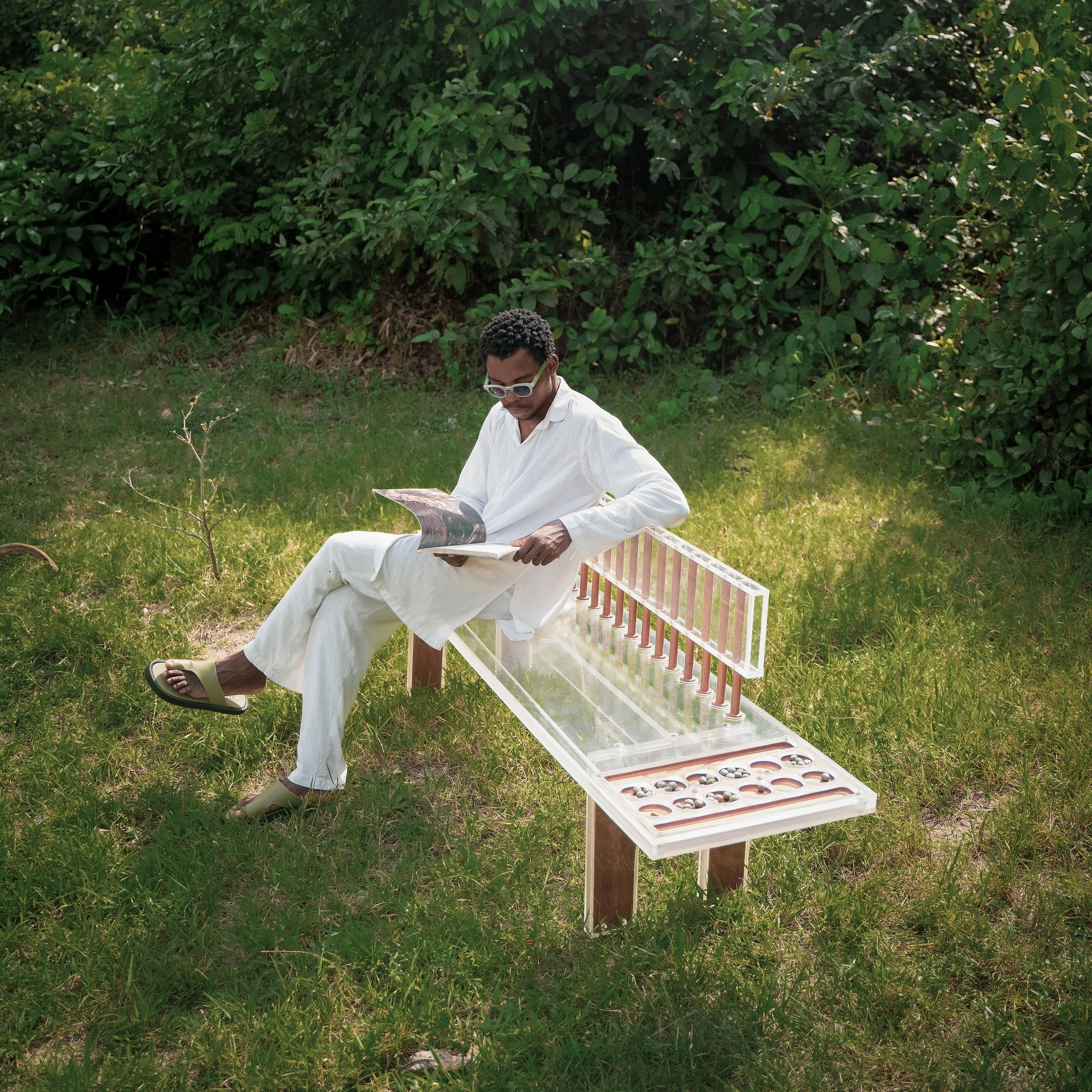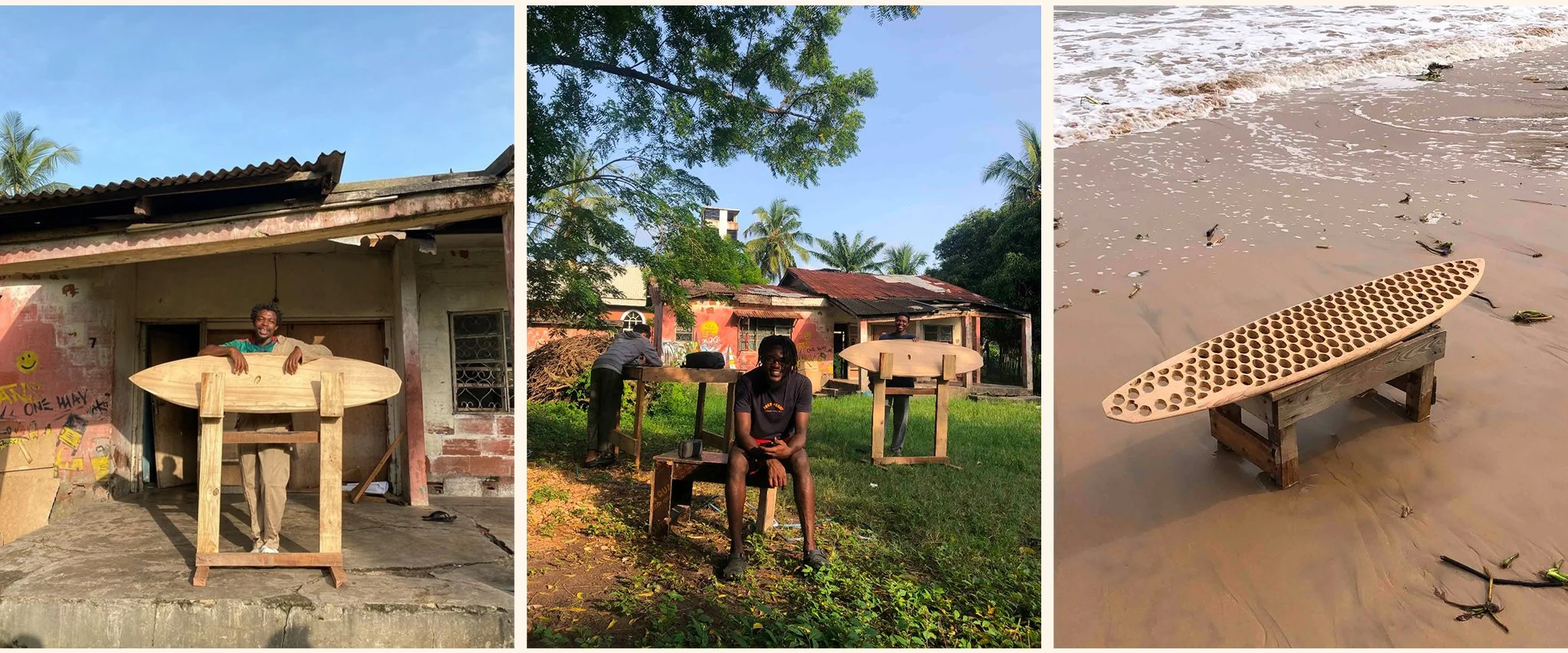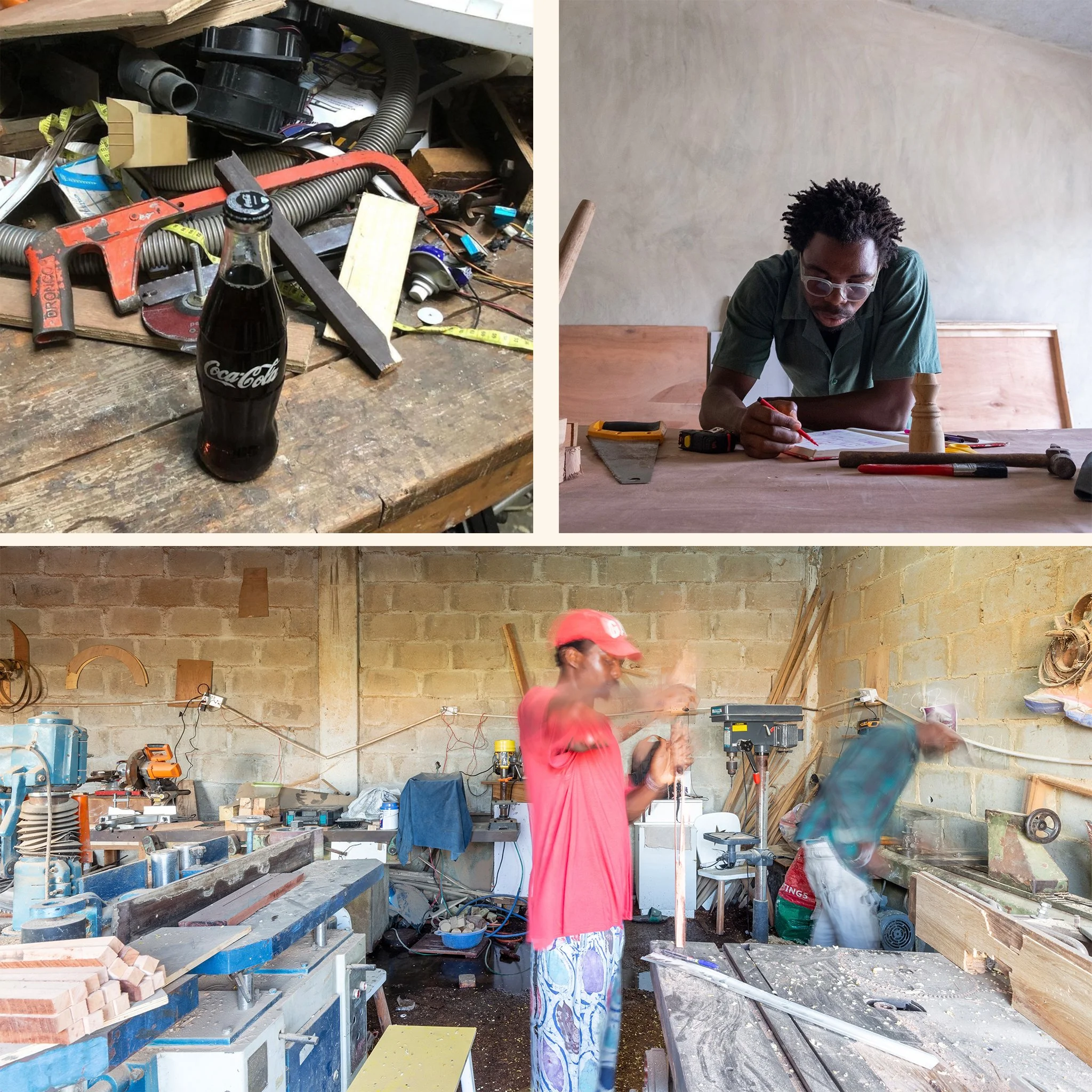Josh Ike Egesi on the Complexity of African Design
Nigerian designer Josh Egesi is truly passionate about African design–both through making objects inspired by his home country and by uplifting those in the creative communities around him. He believes design is a form of cultural documentation and encourages Africans to be loud and proud about their work.
Josh puts his words into action through Designers Directory Africa: a directory of Nigerian fabrication resources he launched to assist in producing African-made designs. He also created Sapele, a surf brand and social enterprise in Tarkwa Bay, Lagos. By transferring surfboard manufacturing skills to the local community, he helped create a sustainable economic opportunity through surfboard production and sales.
Josh founded his interdisciplinary design studio Ike in 2021 and has already achieved so much–yet it feels like it’s only the beginning.
WHERE IS HOME? Primarily, home is Lagos, Nigeria–but this is changing as my dreams to contribute to a sustainable design ecosystem in Africa keeps growing. So, Africa is becoming home to me.
HOW IS DESIGN PERCEIVED AS A CAREER PATH WHERE YOU GREW UP? I never grew up with the understanding of design as a career path. You were either an engineer, doctor, accountant or an artist that paints or sculpts. Recently, we have had a lot more people and events emerge, pushing the discourse of design as a practice. I am on a journey to sensitize people at the grassroot about design, because a lot of career decisions are made at a very tender age. So I will say we are just awakening into the reality of design as a career path on this side.
A symbol of community, the Ayo Bench incorporates the traditional Nigerian game, Ayo.
TELL US ABOUT WHAT YOU MAKE. Ultimately, I make things that excite me. Because I am very much invested in the evolution of my people, I tend to design products and projects that are geared towards solving our unique problems. I design interior products because I want to make houses homes again. I grew up experiencing homes with personality and soul, but we are gradually shifting into this soulless interior design practice. It is sad that people are not being intentional about their living spaces. This lack of intentionality reflects in the quality of their lived experiences.
I also design social impact projects like Designers Directory Africa, Social Design Experiment and Sapele Surf, because I see the need to create systems that would foster productivity and instill the importance of design.
Sapele, a social enterprise creating surfboards from local wood and ocean waste.
WHAT ARE YOUR THOUGHTS ON AFRICAN DESIGN? Many people misunderstand the depth and complexity of African design. They often equate it with vibrant colors, bold symbols, and organic shapes, but these elements are just a small part of the story. In today's design landscape, the true essence of African design lies in its ability to communicate the soul of an object. It's about creating pieces that resonate on a personal level, evoking emotions and telling stories.
DO YOU HAVE A FAVORITE PART OF THE PROCESS? I will say my favorite part is the process itself. It is therapeutic to go through the process of bringing something to life. It helps me remember that this is what a journey to greatness feels like.
TELL US ABOUT A MOMENT YOUR HOME COUNTRY INSPIRED YOU TO CREATE. I think of my process as spiritual. Sometimes it takes years for the ideas to come together but when they do, I feel it in the depth of my soul and at that point I know it is a great idea. One of my designs that is greatly inspired by my country is the Ikeoku Floor Lamp. I grew up using kerosene lanterns so I decided to draw inspiration from that. After I made the prototype, I decided to name the lamp Ikeoku–meaning the strength of light or fire. A few months later, it dawned on me that Onyeikeoku, meaning someone with the strength of light or fire, was what my dad was called whenever we went to the village for festivities. It was so shocking to have this realization and it made a lot of sense to me, because my late dad is and always will be a great source of inspiration for me.
From left to right: the Ikeoku Floor Lamp and Yabasi Lamp.
WHY DO YOU DO WHAT YOU DO? I am honestly tired of the misinformation that everything good comes from the West. I think it has been this way because we [as Africans] have not been doing a very good job documenting our best minds. This is why I have made it a point of duty to tell our stories and be bold about it. I also advise people that I mentor to be very vocal about what they make and share their processes. I believe we should not be quiet about our works, however small. We need to make a lot of noise about it so we can at least educate our people about the great works we are making.
YOUR LOVE LETTER TO NIGERIA: I am in a toxic relationship with Nigeria, but I will always be in Nigeria at heart no matter where I go. This is an emotional period for me as I see the need to explore the rest of the world for a while and then come back with a wealth of knowledge to help make Nigeria a better place for the rest of us. It’s a sacrifice that needs to be made. I will always love my country, Nigeria.
HOW DOES PLACE INFORM YOUR PRACTICE? Place is a major factor in my practice. It informs the problems I choose to solve, the materials I work with, the artisans, the culture… All these are what makes for the uniqueness of whatever I make.
TELL US ABOUT A LOCAL UNSUNG HERO. I know a designer called Obiora Nwazota. He is a great man, architect and designer. He is very critical about what African design is–and he is actively pushing the education of African designers so they understand the powers they carry and how to use these powers. He is more focused on the Igbo culture in the eastern part of Nigeria.
WHAT DOES THE FUTURE HOLD? I think the future of design is African but we need to wake up to this reality and move with purpose.
Connect with Josh on Instagram.
Photography credits: Nyacho Nwanri, Ojay Mayana, Felix Ezema, Josh Egesi, Iyesogie Ogieriakhi, Amanda Iheme and Temiloluwa Johnnson.








